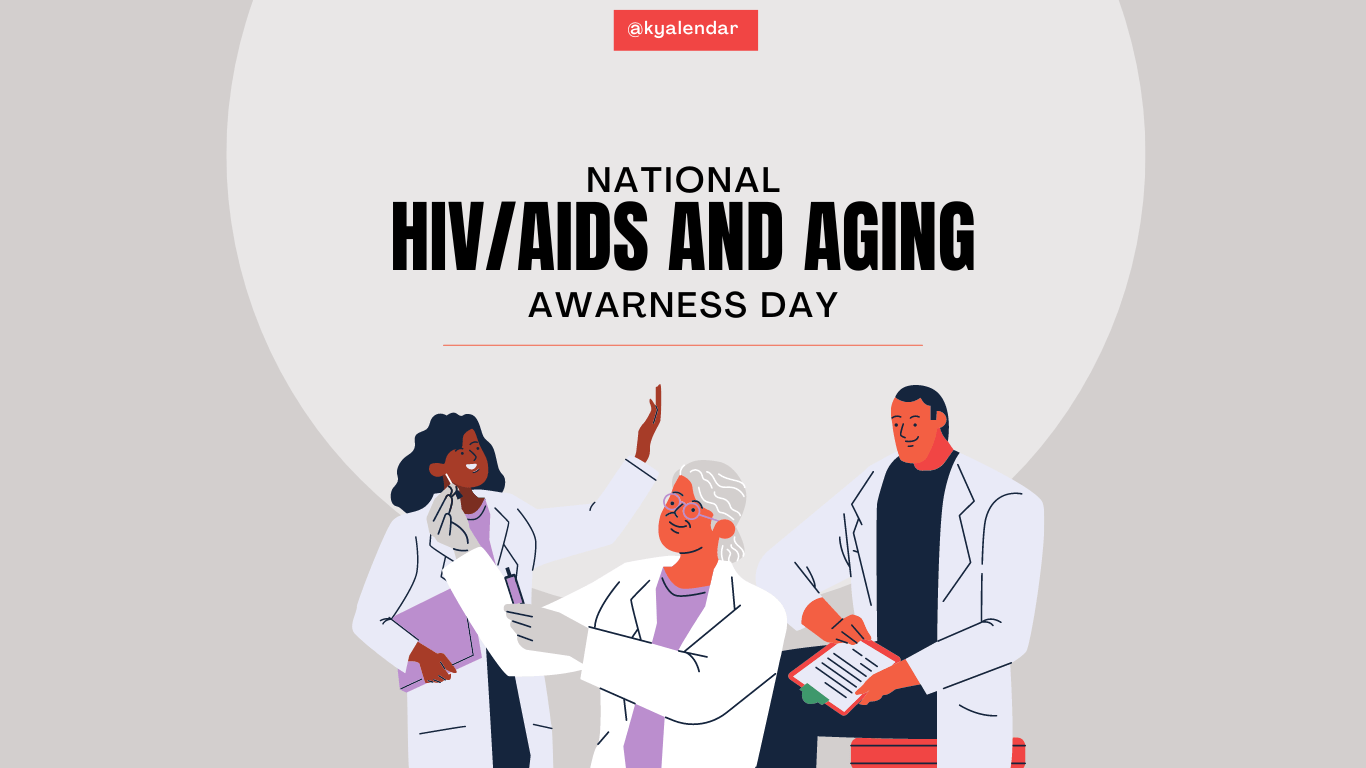
- This event has passed.
National HIV/AIDS and Aging Awareness Day
September 18

National HIV/AIDS and Aging Awareness Day is observed on 18th September each year, with the aim of highlighting the unique challenges faced by older adults living with HIV/AIDS. As the global population ages, the number of people aged 50 and over living with HIV continues to grow, making it increasingly important to address the specific needs and concerns of this demographic.
The Intersection of Aging and HIV
In the early years of the HIV/AIDS epidemic, a diagnosis often meant a significantly shortened lifespan. However, with advancements in antiretroviral therapy (ART) and improved healthcare, people living with HIV are now able to lead longer and healthier lives. As a result, the proportion of older adults with HIV has increased significantly. In fact, it is estimated that by 2030, over 70% of people living with HIV in the United States will be aged 50 and over.
Aging with HIV presents a unique set of challenges. Older adults with HIV are more likely to experience a range of health issues related to both the virus and the natural aging process. These can include cardiovascular disease, diabetes, bone density loss, and cognitive decline. Additionally, the long-term use of ART can have side effects that may contribute to or exacerbate these conditions.
Awareness and Education
National HIV/AIDS and Aging Awareness Day plays a crucial role in raising awareness about these challenges and promoting education among healthcare providers, caregivers, and the general public. By increasing awareness, the day seeks to improve the quality of life for older adults living with HIV and to ensure that they receive the care and support they need.
Education is a key component of this awareness day. It involves informing healthcare professionals about the specific needs of older patients with HIV, including the importance of regular screenings for age-related conditions and the management of potential drug interactions between ART and other medications. It also involves educating older adults about the importance of adhering to their treatment regimen and maintaining a healthy lifestyle to manage both HIV and age-related health issues.
Combating Stigma
Stigma remains a significant barrier for older adults living with HIV. Many older people may face stigma not only because of their HIV status but also due to misconceptions about sexuality and aging. This can lead to feelings of isolation, depression, and anxiety, which can negatively impact both their mental and physical health.
National HIV/AIDS and Aging Awareness Day aims to combat this stigma by fostering a more inclusive and supportive environment for older adults with HIV. It encourages open conversations about HIV, aging, and sexuality, and promotes the idea that everyone, regardless of age, deserves respect, understanding, and access to appropriate healthcare.
The Role of Community Support
Community support is vital for older adults living with HIV. Many may lack a strong social network, especially if they have outlived partners, friends, and family members. National HIV/AIDS and Aging Awareness Day highlights the importance of community organisations, support groups, and peer networks in providing emotional and practical support for older people with HIV.
These organisations play a crucial role in helping individuals navigate the complexities of aging with HIV, offering services such as counseling, health education, and assistance with accessing healthcare and social services. By strengthening these support networks, the day seeks to enhance the overall well-being of older adults living with HIV.
Policy and Advocacy
Advocacy is another important aspect of National HIV/AIDS and Aging Awareness Day. Advocates work to influence policies that address the needs of older adults with HIV, such as improving access to healthcare, increasing funding for research on HIV and aging, and ensuring that older people with HIV are included in clinical trials.
This day serves as an opportunity for policymakers, healthcare providers, and advocates to come together and discuss strategies for addressing the growing needs of this population. It also encourages the development of policies that protect the rights of older adults living with HIV, ensuring they receive the same level of care and support as any other population group.
Conclusion
National HIV/AIDS and Aging Awareness Day is a vital observance that brings attention to the unique challenges faced by older adults living with HIV. As the population of people aging with HIV continues to grow, it is more important than ever to address their needs through education, awareness, community support, and advocacy. By doing so, we can ensure that older adults with HIV live with dignity, respect, and the best possible quality of life.